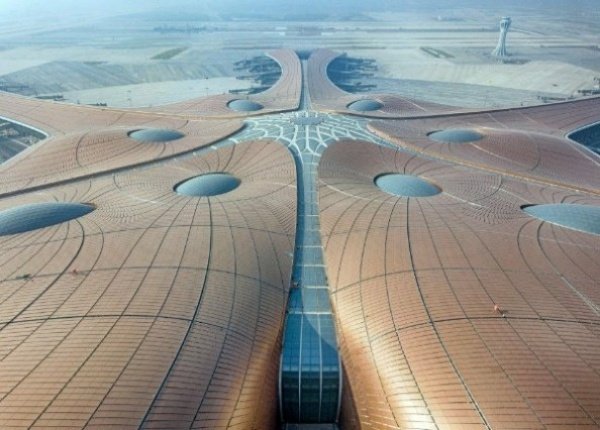News
China Opens ₦4.1 Trillion Starfish-shaped Airport
-
News1 week ago
Liverpool Star Diogo Jota Dies After His Lamborghini Swerved Of The Road, Bursts Into Flames
-
News1 week ago
US-based Nigerian Paid N461 Million For A 10-Minutes Trip To Space Aboard Jeff Bezos’ Blue Origin’s New Shepard
-
News1 week ago
$30 Million Rolls-Royce Droptail ‘La Rose Noire’ Seen Driving On The Streets Of London
-
Latest Cars1 week ago
Lamborghini Looks Back At Its Iconic Few-offs, Including The Reventón, Sesto Elemento And Sián FKP 37
-
News6 days ago
Tesla Cybertruck Split In Two After Tank-like Mercedes G-Class Crashed Into It, Comes Up For Sale
-
News5 days ago
Tesla May Stop Making The Cybertruck As Sales Drop Again
-
News6 days ago
Tesla Model Y Drove Itself From Gigafactory To Its New Owner’s Home 30-min Away (Video)
-
News6 days ago
Bugatti Takes W16 Mistral To 250 Miles, Top-speed Of 186 MPH Before Delivering $5m Hypercar To Their Owners
